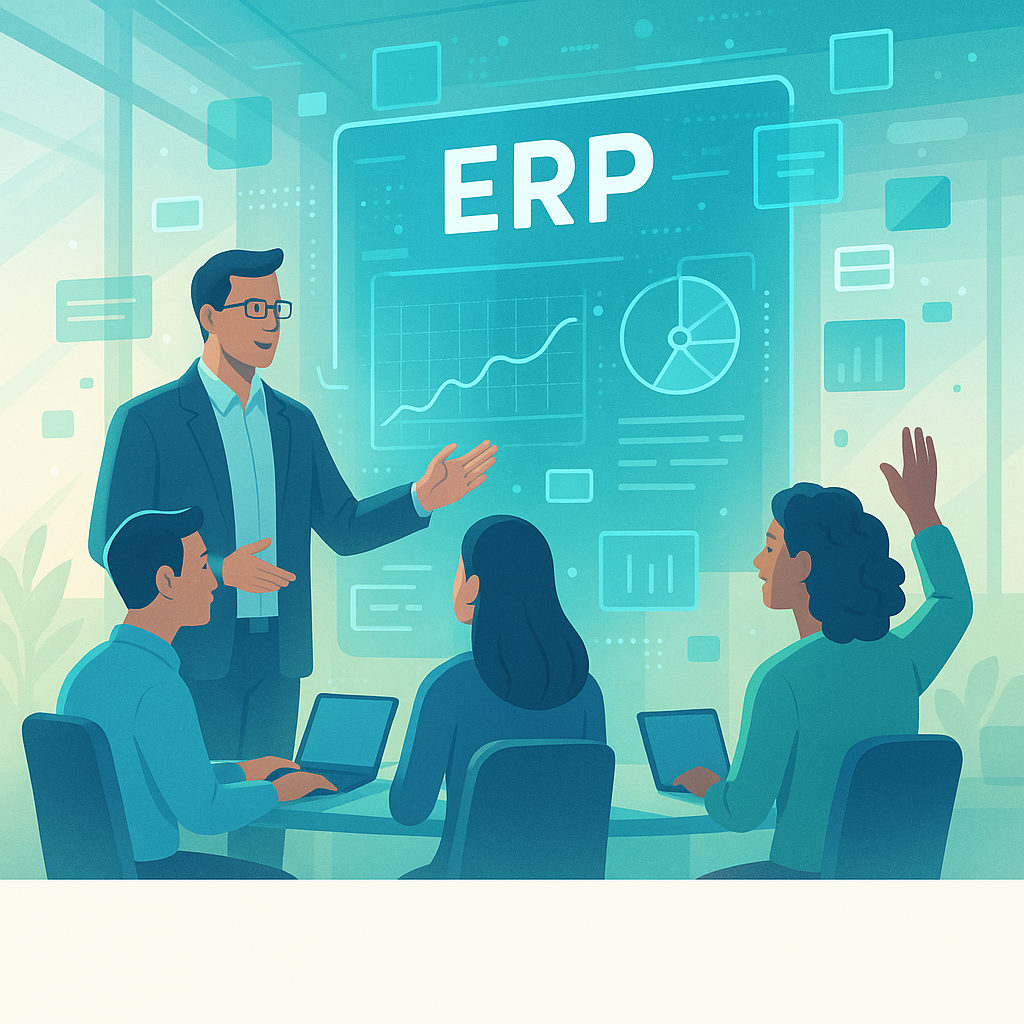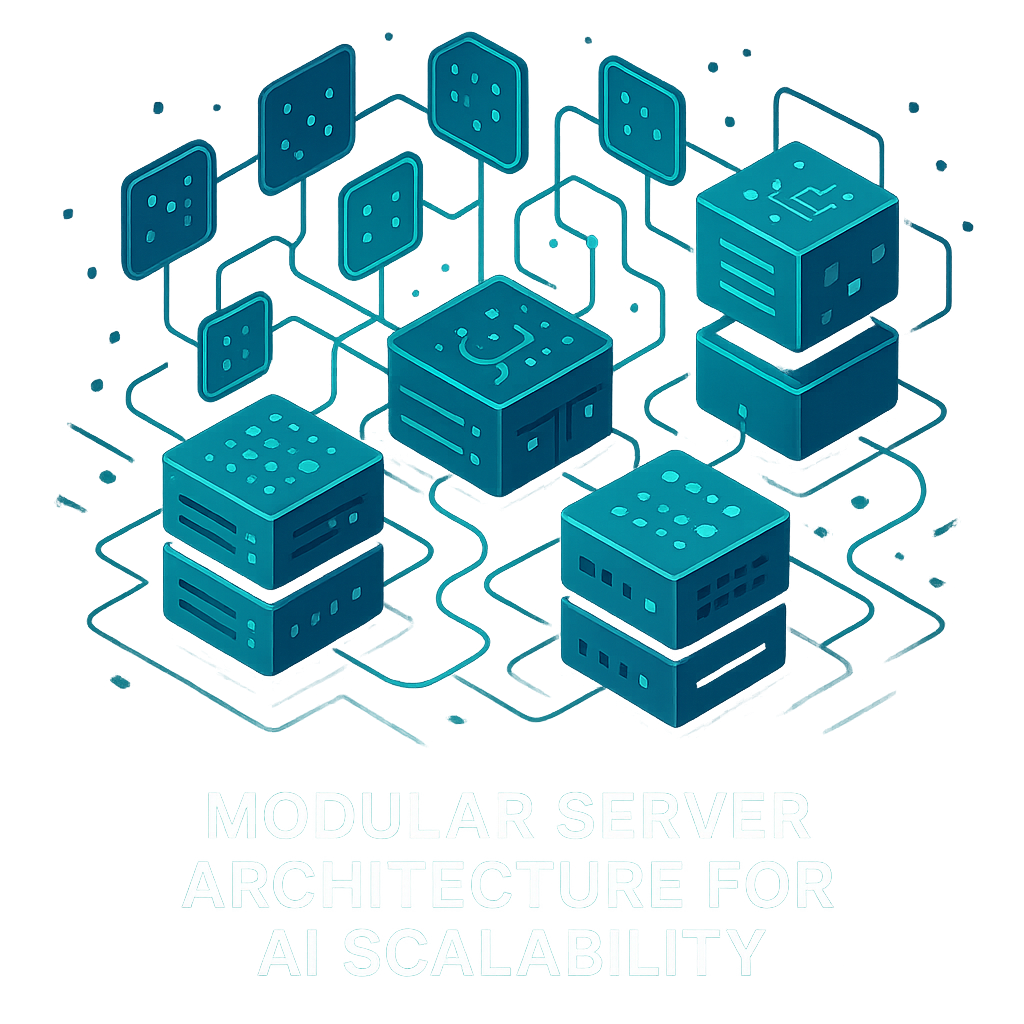What Does an ERP Consultant Do? Roles, Responsibilities & Benefits Explained

What Does an ERP Consultant Do? Roles, Responsibilities & Benefits Explained
ERP software consultants, also known as enterprise resource planning consultants, are specialists who guide businesses through selecting, implementing, and optimizing ERP systems. Their work ensures that these powerful solutions drive process efficiency, foster digital transformation, and deliver measurable business results. They operate across various industries and global locations, offering their expertise as independent advisors, as part of ERP consulting teams, or in collaboration with specialized firms like The Ninja Studio.
In today’s competitive landscape, organizations face growing pressure to streamline operations, cut costs, and enhance customer experiences. ERP consultants play a critical role by helping businesses unify core functions such as finance, HR, supply chain, inventory, sales, and customer relationship management into one integrated system. With their guidance, companies can avoid costly implementation mistakes, minimize downtime, and accelerate ROI.
These consultants operate across industries from manufacturing and retail to healthcare, logistics, and professional services — tailoring ERP strategies to meet unique business needs. They may work independently, within dedicated ERP consulting teams, or in partnership with specialized firms like The Ninja Studio, where technology-driven solutions align with long-term growth objectives.
Whether a company is evaluating its first ERP system, upgrading legacy software, or seeking to optimize existing platforms, ERP consultants bring the technical know-how, change management expertise, and business acumen needed to ensure success.
What Does an ERP Consultant Do?
Defining ERP Consulting Roles
At its core, an ERP consultant's job is to steer companies through the entire ERP adoption lifecycle. This journey begins with software selection and extends to implementation, customization, and ongoing support. The ultimate goal is to make sure the ERP system perfectly aligns with a client’s business processes and long-term strategic vision.
Here are some of their key activities:
- Project Management: They plan and oversee every phase of the ERP implementation, making sure everything stays on schedule, within budget, and meets all project goals.
- Business Process Analysis & Improvement: Consultants assess existing workflows, pinpoint inefficiencies, and redesign them for better performance and productivity.
- ERP System Selection & Advisory: They help clients pick the best ERP software for their specific industry, size, and operational needs.
- Customization and Configuration: A consultant adapts the ERP system to fit unique organizational needs, which can involve creating custom ERP solutions for specific business challenges.
- Integration & Data Migration: They ensure the new ERP system connects smoothly with existing business tools and that all data is transferred accurately.
- User Training and Change Management: A big part of their role is preparing teams to use the new software effectively, encouraging user adoption, and managing the organizational shift.
- Technical Support and Continuous Improvement: After the launch, they provide troubleshooting, support, and updates to keep the system running smoothly.
ERP Project Management
ERP consultants are the leaders who manage the entire ERP project from start to finish. This includes planning, selection, implementation, customization, integration, and testing. Their expertise ensures that every step aligns with business objectives and delivers real value.
Business Process Re-engineering
By studying current workflows, these consultants identify bottlenecks and suggest ERP driven improvements. They help organizations simplify their operations, cut down on redundant tasks, and build scalable processes for future growth.
Solution Design and Customization
A talented consultant is both an ERP integration specialist and an ERP solution architect. They handle all technical configurations and customizations, which might include writing code for interfaces, developing unique modules, or setting up workflows tailored to specific industry needs.
ERP System Implementation and Deployment
- Implementation Planning: They outline all the steps, milestones, and resources needed to go live.
- Test Case Development: They create and run tests for individual units, system integration, and user acceptance to guarantee the ERP performs flawlessly.
- System Deployment: They coordinate the go-live event and manage the system's stability right after launch.
Support, Training & Documentation
Continuous support is essential for success. Consultants offer end-user training, create helpful documentation, and provide troubleshooting to make sure the software is adopted by the team and operates without major issues.

There are several kinds of ERP consultants, each with a different focus:
Types of ERP Consultants
ERP consulting is a broad field, and not all consultants perform the same role. Depending on your business needs, you may work with one or several types of ERP consultants to ensure a successful implementation and long-term optimization. Below are the main categories:
1. Functional ERP Consultants
Functional consultants specialize in the business processes that an ERP system supports. They focus on areas such as finance, human resources, supply chain, sales, or procurement. Their role is to understand your workflows, map them to the ERP system’s capabilities, and configure the software to meet your company’s unique requirements. Businesses rely on functional ERP consultants to ensure the system aligns with real-world operations.
2. Technical ERP Consultants
Technical consultants handle the back-end side of ERP projects, including software development, system customization, database management, and integration with other enterprise tools. They ensure the ERP platform is technically sound, secure, and scalable. Technical ERP consultants are often responsible for data migration, custom coding, and building APIs to connect ERP with CRM, e-commerce, or analytics systems.
3. ERP Implementation Consultants
Implementation consultants oversee the entire ERP deployment process — from project planning and requirement gathering to testing, training, and go-live support. They work closely with both technical and functional teams, ensuring the implementation stays on time, within budget, and aligned with business goals. These consultants often follow proven ERP implementation methodologies to reduce risks and accelerate adoption.
4. ERP Integration Consultants
Integration consultants focus on connecting ERP systems with existing business applications. Whether it’s linking ERP with cloud-based tools, customer relationship management (CRM) platforms, or third-party logistics systems, integration consultants ensure smooth data flow across your enterprise. This eliminates silos and gives businesses a unified, real-time view of their operations.
5. Independent ERP Consultants vs. ERP Consulting Firms
Some ERP consultants operate independently, offering specialized expertise at a more flexible scale. Others work within large ERP consulting firms, providing end-to-end services with access to wider resources and technology partnerships. Businesses may choose between independent consultants or consulting firms depending on project size, budget, and complexity.
Benefits of Hiring an ERP Consultant
- Expert Guidance: Their deep understanding of best practices helps in making smart decisions and managing risks.
- Accelerated Implementation: Good project management prevents delays, which saves time and money.
- Business Process Optimization: Consultants redesign workflows for real efficiency gains you can measure.
- Customized Solutions: You get adaptations and modules that fit your company's unique needs.
- User Adoption & Training: A structured onboarding process drives solution acceptance and makes sure everyone is on board.
- Risk Reduction: They help you avoid expensive mistakes and ensure you comply with industry standards.
- Ongoing Improvements: Continuous support and updates maximize the system's lifespan and return on investment.
How to Choose an ERP Consultant
Finding the right ERP partner is crucial. Here are five things to look for to ensure a smooth and effective ERP experience:
- Industry-Specific Experience: Look for ERP consultants who have a proven track record in your industry, whether it's manufacturing, distribution, or healthcare.
- Technical and Functional Expertise: They should be familiar with both the technology and the business processes it supports.
- Vendor Independence: Independent consultants can offer unbiased advice. On the other hand, firm-based consultants, like those at The Ninja Studio, bring extensive resources for larger projects.
- Global Reach & Local Knowledge: Make sure your consultant understands regional regulations and can support operations wherever you are.
- Comprehensive Service Offering: A full-range provider like The Ninja Studio offers everything from strategy to migration and Cloud ERP solutions, ensuring complete coverage.
ERP Consulting Companies Comparison
When you're choosing between independent consultants and firms, here’s a quick comparison:
- Bias: Independents are usually vendor-neutral, while firms might have preferred solutions.
- Resource Depth: You get an individual's expertise versus a multidisciplinary team.
- Cost: Independents can be more flexible and lower-cost, while firms often have fixed packages.
- Customization Capability: Independents offer highly tailored focus, whereas firms provide broad, scalable services.
- Support Post-Implementation: Support is more personalized with an independent, but firms can offer structured, 24/7 support.
ERP Consultant vs. ERP Developer
It's easy to confuse these two roles, but they are quite different:
- Core Role: A consultant acts as a bridge between business and IT, focusing on system selection and process improvement. A developer, in contrast, designs, codes, and maintains the ERP software itself.
- Focus: The consultant looks at the big picture strategy, while the developer is centered on the technical creation of the software.
- Client Interaction: Consultants have high levels of client interaction, while developers have moderate interaction.
Top ERP Consulting Services: Global Coverage
Leading ERP consulting firms and specialists are available worldwide:
- erp consulting services usa: Offering regional integration, compliance, and cloud ERP solutions.
- erp software consultant uk: Key leadership in manufacturing, retail, and finance sectors.
- erp consulting companies europe: Serving diverse markets, including Germany, France, and the Nordics.
- erp consulting services canada, erp consultant india, erp consultant singapore, erp consulting companies australia, erp implementation consultant middle east: All these regions have localized support combined with global scalability.
Custom ERP Solutions vs. Off-the-Shelf Systems
Should you build or buy? Here's a look at custom ERP solutions versus off-the-shelf options:
- Flexibility: Custom solutions are highly customizable, while off-the-shelf systems have limited options.
- Implementation Time: Custom builds take longer because they're tailored to your business, while standard systems are faster to deploy.
- Cost: A custom solution has a higher upfront cost but can have a lower total cost of ownership over time. Off-the-shelf software has a lower initial investment.
- Fit to Business: Custom systems align perfectly with your processes, while standard ones might require you to adapt your workflows. For a deeper dive, read about enterprise resource planning.
Frequently Asked Questions
What does an ERP consultant do?
An ERP consultant analyzes business needs, designs and implements tailored ERP systems, and provides ongoing support, training, and optimization to ensure maximum business value.
How to choose an ERP consultant?
Look at their industry experience, technical expertise, vendor independence, global and local knowledge, and the range of services they offer.
What is the role of an ERP consultant?
They manage ERP selection, project management, customization, data migration, and training, serving as strategic partners in digital transformation.
How much does ERP consulting cost?
Costs vary based on project scope, consultant experience, and location. Expect a range from fixed-price packages to custom hourly rates.
What are the benefits of hiring an ERP consultant?
You get a streamlined implementation, expert process optimization, reduced risks, a faster ROI, and continuous system support.
Can ERP consultants help with software selection?
Yes, they guide you through evaluating options, matching solutions to your process needs, and negotiating with vendors.
How do you implement an ERP system successfully?
Work with a skilled ERP consultant for thorough planning, clear goals, user training, a phased rollout, and dedicated post-launch support.
Why hire an independent ERP consultant?
Independent consultants offer unbiased advice and specialized expertise, which is ideal for objective software selection.
Is ERP consulting worth the investment?
For most businesses, yes. Professional ERP consulting provides measurable value by ensuring systems are chosen correctly, implemented efficiently, and fully adopted.
What is the difference between an ERP consultant and an ERP developer?
ERP consultants focus on strategy and business process alignment, while developers handle the technical design, coding, and maintenance of the ERP software.

%201.png)


.svg)




.svg)
